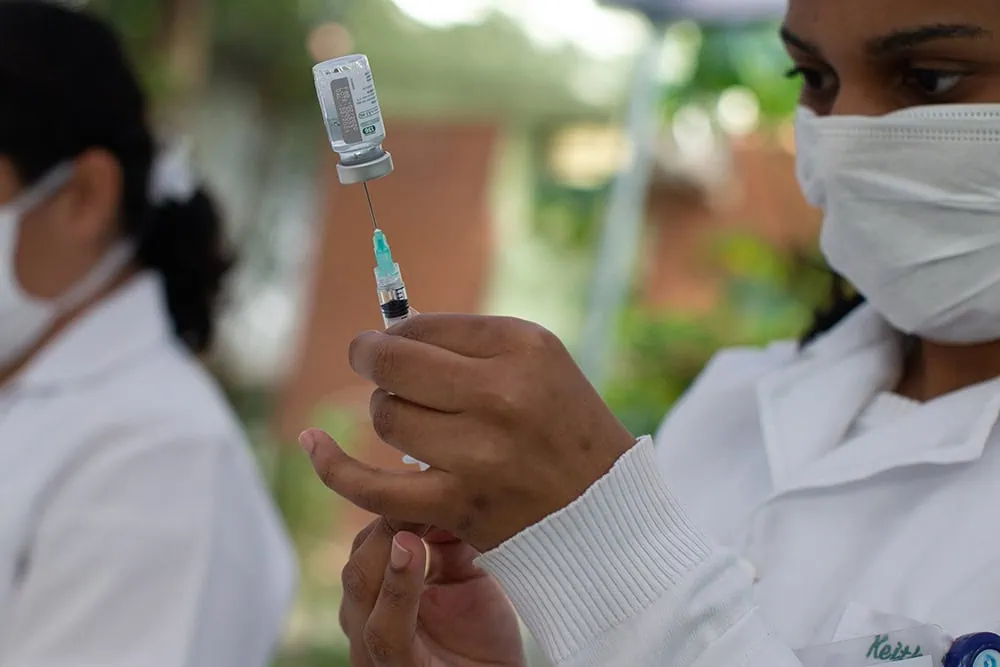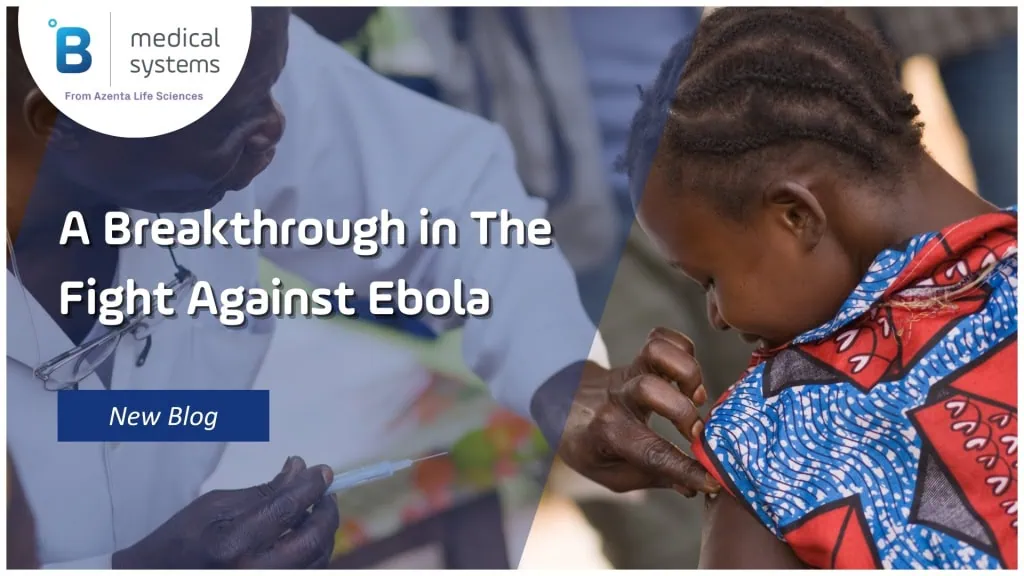Blog
Revolutionizing the fight against Ebola
Introduction
In the ongoing battle against infectious diseases, Ebola stands out as one of the most daunting challenges the global health community has faced in recent decades. Characterized by its high fatality rates and rapid transmission, the Ebola virus has historically plunged entire regions into states of emergency. However, groundbreaking advancements in vaccine development promise not only means of prevention but also a potential treatment for those already afflicted. A recent report has shown that an Ebola vaccine can halve the death rate among infected individuals, marking a significant milestone in the fight against this deadly virus.
Understanding Ebola and its impact
The Ebola virus disease, often simply referred to as Ebola, presents one of the most severe viral hemorrhagic fevers known to humanity. First identified in the mid-1970s near the Ebola River in what is now the Democratic Republic of Congo, the virus has since emerged sporadically, causing widespread fear, significant mortality, and substantial disruption in affected communities. Ebola’s symptoms start with what might seem like benign flu-like signs—fever, sore throat, muscle pain, and headaches—but rapidly escalate to more severe conditions, including vomiting, diarrhea, rash, and both internal and external bleeding. The disease’s high fatality rate, which can reach up to 90% in some outbreaks, underscores the critical need for effective medical interventions and preventative measures.
Ebola outbreaks, predominantly occurring in sub-Saharan Africa, strain already fragile healthcare systems, challenging the international community’s ability to respond effectively. The social fabric of affected communities often unravels as fear, stigma, and grief take hold, further complicating containment efforts and disrupting normal life. The economic impact is profound as well, with outbreaks leading to significant losses in agriculture, trade, and productivity due to quarantine measures, travel restrictions, and reduced labor force participation.
The pathogen’s ability to spread through human-to-human transmission, primarily via direct contact with bodily fluids of infected individuals or contaminated objects, necessitates rigorous infection control measures. Healthcare workers are particularly at risk, and outbreaks can lead to significant casualties among those on the front lines of response efforts.
Understanding Ebola and its far-reaching impacts is crucial for developing effective public health strategies, including vaccination campaigns, community education, and strengthening healthcare infrastructure. The battle against Ebola is not just about managing an infectious disease but also about addressing the broader socio-economic challenges that outbreaks exacerbate.
The breakthrough: halving death rates with vaccines

The introduction of the Ebola vaccine into affected regions has been met with optimism and relief. By significantly reducing the fatality rates, the vaccine offers a double-edged sword against the epidemic – not only preventing the onset of the disease in uninfected individuals but also offering a ray of hope for those already battling the virus. This dual capability of the vaccine enhances its value as a critical tool in the containment and management of outbreaks, potentially altering the course of future epidemics.
The development of this Ebola vaccine is a testament to the relentless pursuit of knowledge and the collaborative spirit of the scientific community. It underscores the importance of sustained research and development efforts, even in the face of diseases that might not always be in the global spotlight.
The role of the cold chain in vaccine efficacy
This complex system of temperature-controlled storage and transportation equipment that makes up the vaccine cold chain is critical in maintaining the integrity of temperature-sensitive vaccines, such as the rVSV-ZEBOV developed for Ebola. It is critical to understand, however, that even a minor breach in the cold chain can compromise a vaccine’s potency, rendering it ineffective and jeopardizing public health efforts.
rVSV-ZEBOV in particular, requiring a storage temperature of -70°C or less, is a very difficult vaccine to store and transport, as it is reliant on ultra-low freezers. These freezers guarantee the storage temperature required and protect the vaccine doses from any danger the environment poses for them, whether it being the heat, the humidity, the light or more, but they are usually used in laboratories for research purposes and are generally not built to be used in the field as many more common vaccine refrigerators are. It is therefore vital that when it comes to the rVSV-ZEBOV vaccine, it is stored in ultra-low freezers that offer a wide ambient temperature range, one that includes or can perform at the high temperatures that can be found in sub-Saharan countries such as the Democratic Republic of Congo.
Furthermore, transporting this highly temperature-sensitive vaccine until the last mile requires transport solutions that must again be able to meet extremely low temperatures. These devices need to be certified to be able to achieve this, else running the risk of the vaccines being exposed to high temperatures during the journey.
Our advanced medical cold chain solutions are engineered to uphold stringent temperature standards, safeguarding the viability of vaccines through every step of their journey. By meticulously controlling the environment in which vaccines are stored and transported, we ensure that they arrive in optimal condition, ready to fulfill their life-saving potential. Our commitment to robust medical cold chain management underscores our dedication to global health initiatives and our role in empowering the fight against infectious diseases worldwide.
Conclusion
As we reflect on the strides made in combating Ebola through groundbreaking vaccine developments, it’s clear that the journey from research labs to real-world application is fortified by the strength of vaccine cold chain logistics. Our dedication to pioneering cold chain solutions not only supports the fight against Ebola but also sets the stage for future successes against other infectious diseases.



